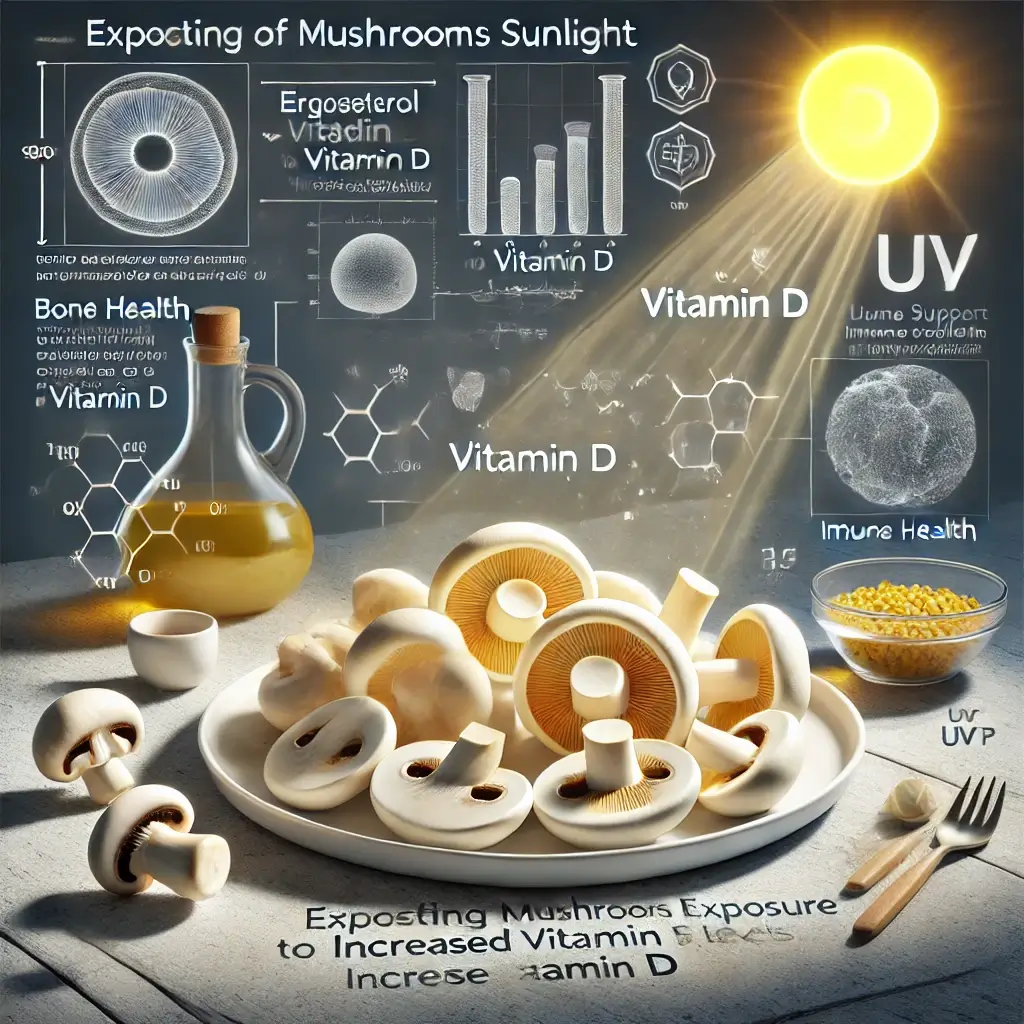Nutritional Value of Mushrooms
Mushrooms are a food that are enjoyed by a large number of people all over the world because of their high nutrient content. Because they are such a rich source of various vitamins, minerals, and antioxidants, they are an excellent addition to any diet that is focused on eating healthily. On the other hand, a significant number of people are likely oblivious to the fact that mushrooms can also be an excellent source of vitamin D, a nutrient that is crucial for human health.
The Science Behind Sun-Exposed Mushrooms
The amount of vitamin D that is contained in mushrooms can be increased by exposing them to the sun before cooking. Ergosterol is one of the compounds that can be found in mushrooms. When this compound is exposed to ultraviolet (UV) light from the sun, it can be converted into vitamin D.
How to Increase Vitamin D in Mushrooms
Simply exposing mushrooms to direct sunlight for 15 to 30 minutes will increase the amount of vitamin D they contain. To do this, place the mushrooms on a baking sheet or plate and put them in the sun. After that, you can proceed to cook them as you normally would.
Important Safety Considerations
It is essential to keep in mind that mushrooms should not be exposed to the sun for more than half an hour at a time because doing so can cause them to go bad. Because raw mushrooms can harbor bacteria that are harmful to humans, it is vitally important to note that mushrooms must be cooked before being consumed.
Scientific Research on Mushrooms and Vitamin D
Recent scientific research has shown that exposing mushrooms to sunlight can increase the amount of vitamin D in them by as much as 700 percent. This occurs because the ergosterol that is naturally present in mushroom cell walls is converted to vitamin D when the mushrooms are subjected to UV light. This is a fascinating process that takes place naturally in mushrooms, and it has important repercussions for the health of humans.
The Importance of Vitamin D for Human Health
Vitamin D is an essential nutrient that is involved in a wide variety of processes that are vital to the proper functioning of the body. Because it assists the body in absorbing calcium and phosphorus, two minerals that are necessary for strong bones, it is necessary for proper bone health. In addition to this, it is essential for proper immune function, as it assists the body in warding off illnesses and infections. In addition, vitamin D plays a role in the growth and development of cells, which makes it essential for the health and well-being of the body as a whole.
Vitamin D Deficiency Concerns
Unfortunately, a large number of people do not get enough vitamin D, which can result in a wide range of negative health effects. Because vitamin D is produced naturally by the body in response to exposure to sunlight, this is an issue that is exacerbated for those who live in regions that receive inadequate sunlight. However, people can improve their overall health and increase the amount of this vital nutrient that they consume in their diets by including mushrooms in their meal plans.
Practical Tips for Nutrient-Rich Mushrooms
If you want to increase the nutritional value of your mushrooms, one great option is to let them soak up some sun for a few minutes before cooking them. This will allow the nutrients in the mushrooms to be more readily absorbed by the body.
Summary of Health Benefits
In conclusion, mushrooms are an exceptionally nutrient-dense food that, when exposed to sunlight, can deliver a sizeable dose of vitamin D. Because of its importance in maintaining strong bones, proper immune system function, and the growth of new cells, this nutrient is an essential component of a healthy diet.
Improving Overall Health with Mushrooms
People can improve their overall health and well-being by increasing their intake of this essential nutrient and increasing the amount of mushrooms in their diet. Mushrooms are rich in selenium.
References
- Cardwell G, Bornman JF, James AP, Black LJ. A Review of Mushrooms as a Potential Source of Dietary Vitamin D. Nutrients. 2018;10(10):1498.
- Keegan RJ, Lu Z, Bogusz JM, Williams JE, Holick MF. Photobiology of vitamin D in mushrooms and its bioavailability in humans. Dermatoendocrinol. 2013;5(1):165-176.
- Nölle N, Argyropoulos D, Ambrosio S, Müller J, Biesalski HK. Vitamin D₂ enrichment in mushrooms by natural or artificial UV-light during drying. LWT – Food Science and Technology. 2017;85:400-404.
